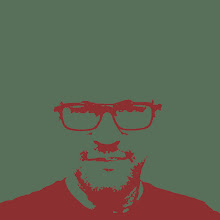R.O.C.K. in the U.S.A.
As my cohort of fellow medical students heads off to start intern year we're understandably a bit nervous about the prospect of the responsibilities we're about to face. In particular, quite a few of us worked in other countries during the last six months where we had a chance to see how doctors are trained elsewhere. And let me tell you, it was pretty humbling. In the U.S. we're required to take (and beat the curve in) three or four years of premedical basic science courses before we even start, after which the first half of med school itself consists largely of another two years in the classroom. It's not until the last two years of med school that we really get out and work with patients directly. But even then, the curriculum has changed in the last couple of decades (in large part due to a combination of legal pressures and specialization) so that we're extremely limited in the procedural training that we actually receive. I personally don't know any American medical students who feel that they've gotten the practical, hands-on training needed for what they'll be expected to do as interns.
In contrast, a common model in many other countries is for med school to start directly after secondary education, so that students are trained to do procedural work with patients much earlier. The result is that, although our foreign counterparts may not have our command of biochemical minutiae at this point, they are way ahead of us in terms of their practical abilities on the hospital wards. Although it all evens out down the line (we hope), more than a few of my U.S. companions sure wish we'd gotten more training in procedures during the past few years, even if it came at the expense of some basic science in the classroom. This is echoed by the old-school clinical professors who will often remind us that when they were medical students they already knew how to do more in the hospital than most interns do today.
However, although I may wish I had more practical training going into residency, it occurs to me that the U.S. is pretty much the only place where I could do what I'm doing at my relatively advanced, non-traditional age. (I'm the oldest student in two or three consecutive classes at my school, and an outlier on the age chart for any med school in the country.) It's common in other parts of the world for even a few years taken away from medical studies at a young age to disqualify a person from becoming a doctor (or at least become even more of an obstacle than it is here). So for those of us in the somewhat older, medicine-as-a-second-career club: go USA!
Labels: Medical Education


1 Comments:
Well Ben, if you were to study in Belgium nobody would look strange because you were a little bit older than the other students.
Even in Great Britain, last year there was a lady who became a doctor in medicine at the age of 92 years !
You see, do not believe everything you hear !
Greetings from mama Heidi
Post a Comment
Subscribe to Post Comments [Atom]
<< Home